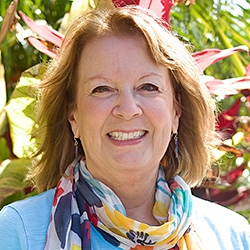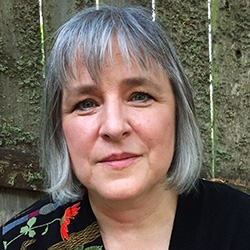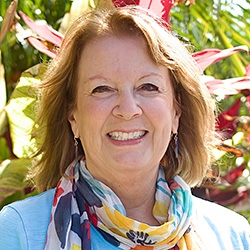

Search Results: question
-
You've probably witnessed and participated in role plays that were powerful tools for inspiration, integration, or healing. You've likely also been in contexts where role plays fell flat, leaving people frustrated, confused, or disengaged. If you're sharing NVC with others – or are envisioning yourself going there in the future – you'll want to take this class, where the focus is on how to increase the chances of having role plays that serve a clear purpose, engage an entire group, and support the deepest learning possible for all.
-
Trainer Tip: Whether there is the potential of physical or emotional violence, listening deeply to the underlying needs of the people in conflict can be swift, direct, and healing. Look for opportunities to defuse conflicts by reflecting the feelings and needs of the other person.
-
In thinking about your relationship with fear and doubt, see what happens when you ask yourself "What do you trust?”. Here's an example response to that question, and how it can open new perspective, soften fear, and bring trust to new depths.
-
- Look at your old patterns with warmth – while also opening yourself up to change.
- Increase your self-compassion – and gain a solid ground to stand on.
- Become intimate with your own survival strategies – and those of the people you love.
- Support healing and connecting in your long-term relationships – even when it seems there is no resolution in sight!
-
- Discover how Spiral Dynamics can offer more understanding of human nature
- Learn from a Ukrainian NVC trainer and Spiral Dynamics experts
- Better grasp the evolution of human needs, values, and life conditions
- Explore how to apply NVC in situations that involve extreme violence
-
Trainer Tip: The surest way to enjoy life is to do things that meet your needs. If you don’t enjoy a particular activity, consider the need you hope to meet by doing it. For instance, for each item you want to do consider the needs you're trying to meet. Connect to the joy of that need. Then for each ask: “How would I feel if I delayed finishing this item?”. Consider which items you want to continue, pause, or reprioritize. This can help increase life enjoyment.
-
NVC is a process. It’s the willingness and effort to empathize with both sides of a conflict, encouraging each side to empathize with the other, and then seeing what solution can arise, working together to meet the needs of both sides. Empathy is the experience of being not separate as well as being an individual. It's seeing we're all part of the one ever-flowing consciousness of being, all unique expressions of this unity.
-
Trainer Tip: Even when it's tempting to coerce or match might with might, we can strive to meet our needs without negatively affecting others. Instead of convincing anyone to do it our way or to value the same things we value, we can focus on what we value: compassion among people and valuing everyone’s needs. By doing this we are actually more likely to meet our own needs and we are better able to live peacefully.
-
No one on their deathbed wished they worked more. Working is unlikely to bring a meaningful life. And yet greeting friends with survivalist expressions, such as, "I'm dead-tired", can feel like affirming our own worth. Taking time off can bring inner spaciousness, ease, rest and consequently time to meet life, to really meet it. Which brings more clarity into the question of what we would like to celebrate on our deathbed.
-
We only have this decade to make radical changes to avert crossing over into an unlivable Earth. What's essential is a critical mass of people with capacity to respond to many enormous, daunting social-environmental challenges. This means on a wider scale, responding to conflict, fear, hate, injustice and violence with the ability to see our commonality underlying our differences. And to feel part of a larger whole so we can birth natural caring, togetherness, and cooperation.
-
By guessing our child's feelings and needs we open the door to understanding what's behind their behavior, and can better suggest solutions that meet both their and our own needs. In this way we build trust and their desire to seek us out in times of need. Expressing our own feelings and needs also allows us to help them understand the value in fulfilling tasks or requests.
-
- Explore the spiritual foundations of NVC
- Witness transformational and healing processes led by Robert Gonzales
- Learn from the questions proposed by participants
- Gain processes that support a consciousness of the “Beauty of Needs”
-
In a workshop, a hesitant white neurodivergent man faced a triggering reaction from a Global Majority transgender man. Uncovering their backgrounds, the facilitator addressed family dynamics and exclusion. A repair exercise fostered empathy, challenging assumptions and emphasizing the importance of equitable facilitation for a richer group experience.
-
Experience the roots of NVC with this remastered introduction to embodied spiritual practice.
-
Uncover self-sabotage and release unconscious contracts through empathy and neuroscience.
-
By guessing our child's feelings and needs we open the door to understanding what's behind their behavior, and can better suggest solutions that meet both their and our own needs. In this way we build trust and their desire to seek us out in times of need. Expressing our own feelings and needs also allows us to help them understand the value in fulfilling tasks or requests.
-
When empathy falls short, uncover strategies and heal patterns through unconscious contract work.
-
Hello friends. I’m Roxy Manning. When Mary invited me to write this letter, I could not help but reflect on what has been most alive for me recently… the way many of us will easily help someone else, but fear to ask for help for ourselves. On December 4, I had an operation. My doctor predicted my recovery would take three weeks. As I prepared for the time off, I rushed to complete all of my work and personal commitments. I prepped and froze dishes so I would have things to eat after and arranged meal deliveries. Very few people knew I was having an operation and I reached out to only one person for support after. In hindsight, I was doing everything I could so...
-
When people have a hard time communicating in a loving way (e.g. criticize, blame, shut down, act out, etc.) it can be very challenging. Using empathy-based communication we can connect to the underlying feelings and needs behind their behavior. By recognizing when to do what (empathizing, stepping back, etc), we can respond with compassion and clarity rather than reactivity.
-
Ask the Trainer: “I would like some suggestions on how to interact with a member of the practice group I started. This individual speaks and acts in a manner I interpret as angry and controlling.”
Quick Links

Stay in Touch!
We value your privacy, won't share your email address and you can easily unsubscribe any time.


















